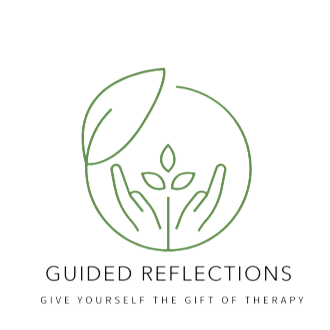Mental Health in a Time of Uncertainty: Finding Ground When the World Feels Unsteady
These days, it seems like the world is constantly shifting beneath our feet. Between overwhelming headlines, economic instability, global conflict, and everyday pressures, it’s no wonder so many of us feel exhausted, anxious, or just emotionally drained.
Even if you’re not directly affected by a crisis, the ripple effects of collective stress are real—and they can weigh heavily on your mind and body. At Guided Reflections Therapy Practice, we’ve heard it from clients again and again: “I feel stuck,” “I’m overwhelmed,” or “I don’t even know why I’m anxious, I just am.” If this sounds familiar, you are not alone.
The Emotional Toll of Uncertainty
Our minds crave predictability. It helps us feel safe, grounded, and in control. But in uncertain times, our nervous systems often stay on high alert—constantly scanning for danger, catastrophizing, or preparing for the worst. Over time, this can lead to:
Chronic stress and fatigue
Trouble sleeping or concentrating
Irritability or numbness
Feelings of hopelessness or burnout
Physical symptoms like tension, headaches, or stomach issues
And let’s not forget the impact of doomscrolling—that spiral of consuming upsetting news online, which only reinforces our sense of helplessness.
Collective Stress is Real
Sometimes we minimize our struggles because “others have it worse.” But the truth is, stress is still stress—even if it's not tied to a personal crisis. When we're constantly absorbing stories of suffering, conflict, or injustice, it’s natural to feel emotionally heavy.
You might be experiencing something called compassion fatigue or vicarious trauma—especially if you're someone who tends to care deeply for others or works in a helping profession.
So… How Do We Cope?
While we can’t control the world around us, we can take small steps to care for our mental and emotional well-being.
Here are a few places to start:
1. Create Boundaries with Information
It’s okay to take a break from the news. Choose one or two trusted sources, and check them once a day instead of refreshing constantly. Your nervous system will thank you.
2. Ground Yourself in Routine
When everything feels uncertain, structure can be calming. Stick to a simple morning routine, take regular walks, or eat meals at consistent times. Predictability in small ways can offer a sense of stability.
3. Move Your Body, Gently
You don’t have to run a marathon—stretching, dancing to your favorite song, or taking a walk can release tension and calm your mind.
4. Talk About It
You don’t have to carry this alone. Whether it’s with a trusted friend, therapist, or support group, talking through your thoughts can help them feel more manageable—and less isolating.
5. Focus on What You Can Control
Make a list of what’s in your power today: showing up for work, calling a loved one, taking medication, limiting screen time. These small choices matter.
6. Practice Compassion—For Yourself and Others
You are human. Feeling overwhelmed doesn’t mean you’re weak; it means you’re responding. Be gentle with yourself. And extend that same grace to others who may be struggling too.
You’re Not Alone
If the weight of the world feels like too much right now, you’re not broken—you’re human. And support is available.
We specialize in helping people find their footing during uncertain times. Whether you're dealing with anxiety, burnout, or simply feeling “off,” our therapists are here to walk with you through it.
Reach out today to schedule a session or learn more about how we can help. You don’t have to navigate this alone.
Resources & Support
Crisis Text Line: Text HOME to 741741 for free, 24/7 support
